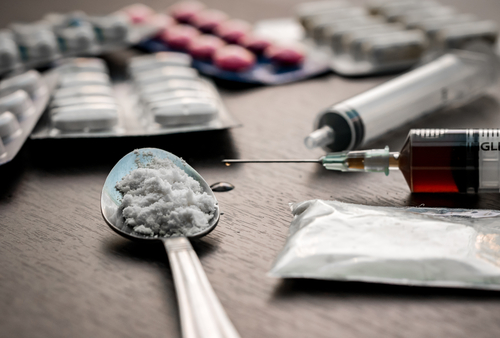
Anxiety, as defined by the American Psychological Association (APA), is an “emotion characterized by feelings of tension, worried thoughts, and physical changes like increased blood pressure.” Anxiety will manifest differently in different people. The feelings of anxiety can range from mild to severe. While fleeting anxiety is unavoidable, it is atypical for an individual to experience frequent, intense, debilitating, persistent worries and/ or fears related to everyday situations, and such anxiety could be indicative of an anxiety disorder. The National Alliance on Mental Illness (NAMI) asserts: “Anxiety disorders are a group of related conditions, each having unique symptoms. However, all anxiety disorders have one thing in common: persistent, excessive fear or worry in situations that are not threatening.” According to Johns Hopkins Medicine anxiety disorders affect up to 18% of the population, making it the most common mental health condition in the United States.
Substance Use Disorder
Addiction, also known as substance use disorder (SUD), is listed in the Diagnostic and Statistical Manual of Mental Disorders, Fifth Edition (DSM-5) as a chronic, relapsing brain disorder. Substance use disorder is defined as a “complex condition in which there is uncontrolled use of substance despite harmful consequence.” Habitually abusing drugs and/ or alcohol will affect the way one’s brain functions, as one’s body becomes increasingly accustomed to operating with the presence of the abused substance in its system. Since the disease compels an individual to prioritize satisfying his or her substance cravings above all else, he or she will likely experience a plethora of adverse effects, including physical complications, relationship fractures, financial strain, legal challenges, employment issues, and more. Data from 2022 presented by the National Center for Drug Abuse Statistics, indicate that addiction affects over 20 million Americans aged 12 and over.
Anxiety and Addiction
There is a complex and bidirectional relationship between anxiety and addiction, and these two conditions often co-occur. Some individuals who suffer from severe anxiety will turn to drugs and/ or alcohol in attempt to help alleviate the discomforts of their anxiety. Self-medicating cannot only be dangerous but can also lead to a built-up tolerance, increasing one’s risk of developing SUD. Conversely, chronic substance abuse can lead to neurobiological changes in the brain, affecting areas involved in mood regulation, stress response, and decision-making. These changes can increase susceptibility to anxiety disorders. Both anxiety disorders and addiction can have genetic and environmental risk factors. These factors can overlap, making some individuals more vulnerable to developing both conditions. The National Institute on Drug Abuse (NIDA) states that people diagnosed with substance use disorder are twice as likely to suffer from an anxiety disorder than the general population.
Treatment In Calabasas
Calabasas is a city in California. It is a well-known suburb of Los Angeles, located west of the San Fernando Valley and north of the Santa Monica Mountains. Over the past decade, the city of Calabasas has grown in its reputation for luxury as well as for privacy which makes it a hidden gem for residential living for society’s elite, and one of the most desirable destinations in Los Angeles County. It is also home to a plethora of highly qualified mental health clinicians providing an array of therapeutic services and treatment options.
The information above is provided for the use of informational purposes only. The above content is not to be substituted for professional advice, diagnosis, or treatment, as in no way is it intended as an attempt to practice medicine, give specific medical advice, including, without limitation, advice concerning the topic of mental health. As such, please do not use any material provided above to disregard professional advice or delay seeking treatment.




